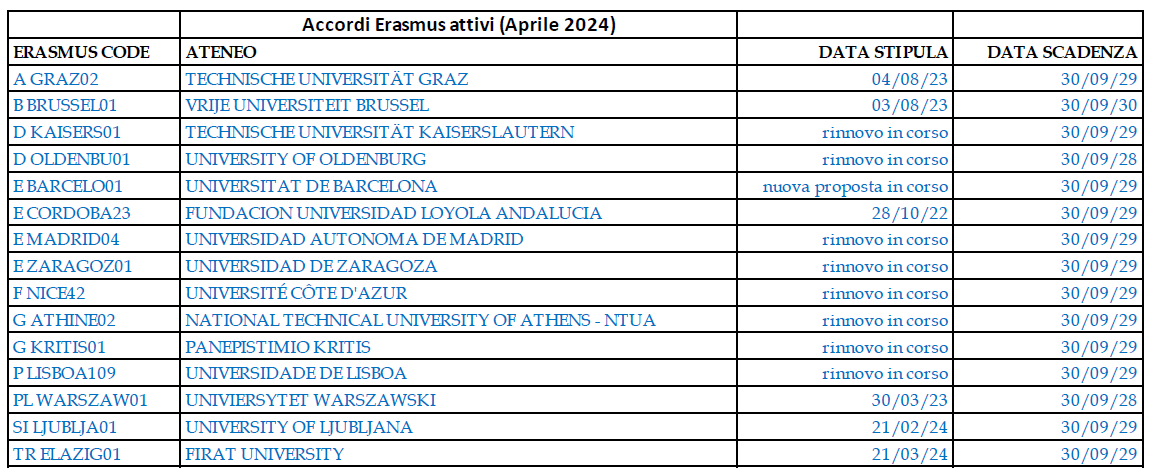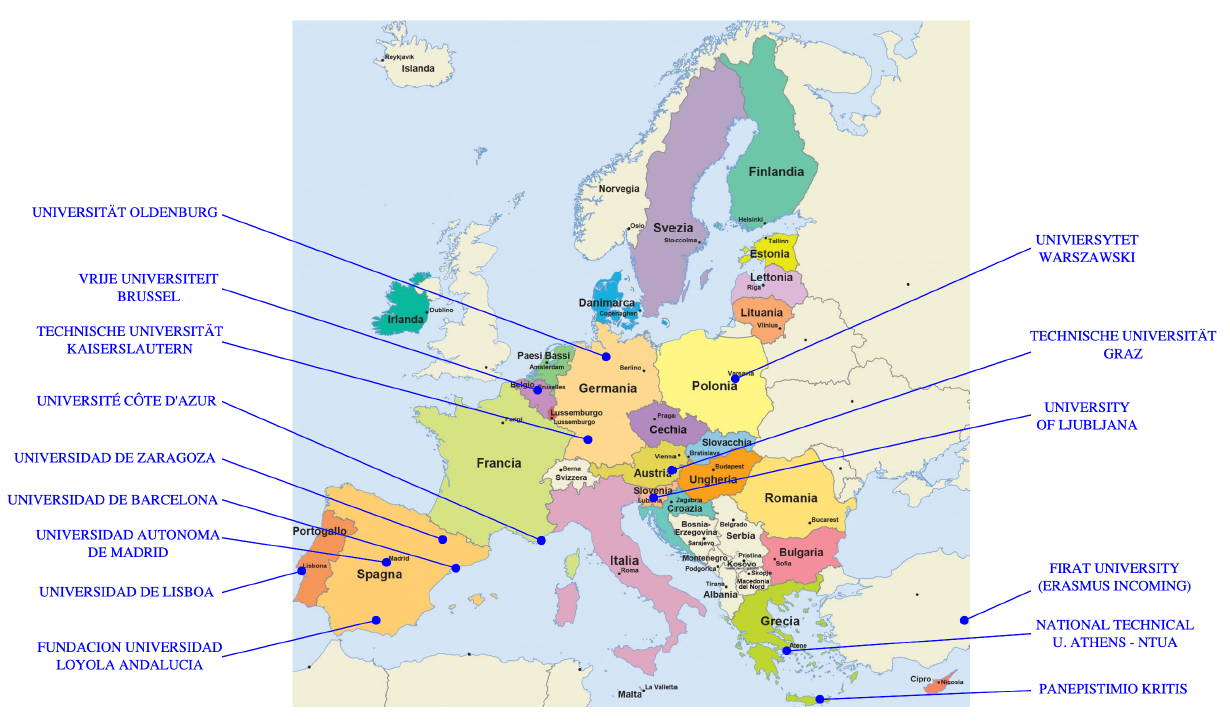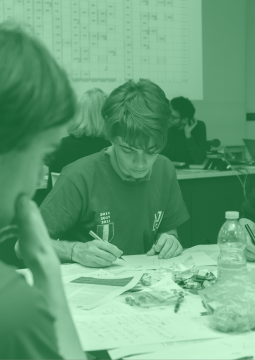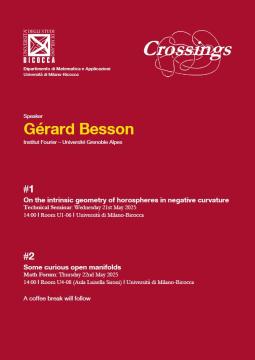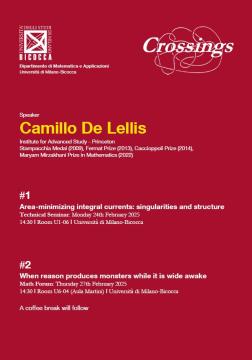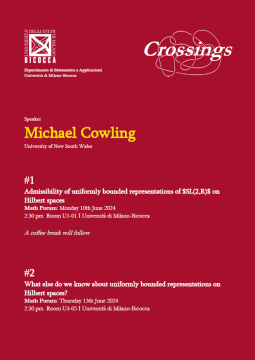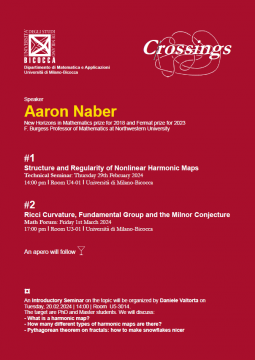Maths Beyond the Desks 2025
The Maths Beyond the Desks Day 2025 was held on 11/04/2025. The event programme, seminar abstracts, flyers and photos can be found below.
Programme
9 am-9:30 am welcome of participants (U2-08b and U2-07)
9:30 am-11:30 am team competition (U2-08b)
9:30 am-12:30 am mathematics workshops (U2-06 and U2-07)
12:30 pm lunch (Galleria della Scienza)
1 pm-2:30 pm maths samples (Galleria della Scienza)
2:30 pm team competition prize-giving (U3-01)
3 pm lectures: the mathematician's work (U3-01)
5:30 final greetings (U3-01)
Samples of mathematics
Guided maths exploration experiences
Polyhedral Puzzles Construction, composition and decomposition of polyhedra to explore their properties and volume formulas.
What do fractions have to do with nodes? We will explore the links between fractions and nodes theory through an interactive experience called the nodes dance. Through simple manipulations of two strings and nodes, key mathematical concepts related to fractions and the Euclidean algorithm will emerge.
Games of two - who wins? An introduction to winning strategies for so-called ‘perfect information’ games and their formalisation ... by playing among yourselves!
There is infinity and infinity! An introduction to some of the properties of infinity in mathematics, and to some important paradoxes involving it.
Squaring the Circle Approximations of the value of Greek π from Archimede to Gauss, using infinite polygons or perhaps just the square.
Fractals and infinity An introduction to the concept of fractal, with construction of examples, and a reflection on the existence of objects of infinite perimeter but finite area.
"Choosing at random": what does it really mean? A guided reflection on the concept of random choice through Bertrand's paradox.
Periodic numbers and the Fermat-Eulero theorem An introduction to Fermat's little theorem, and the Eulero theorem that generalises it, starting with the periodic decimal expansion of rational numbers.
Samples of mathematics
What is studied in a Maths degree: previews and information
Probably Strange - How probability theory helps us against misleading intuitions
Plane tessellations - From Escher to the Einstein dowel
Floating Point Arithmetic - Precision between Numbers and Paradoxes
Interactive Mathematics - A multimedia workstation will provide access to interactive applets that will present problems in various areas of mathematics or allow you to visualise mathematical items.
Mouth-watering Paradoxes - Ice cream makers, elections and other strange things!
Geometry of polyhedra - A discrete invitation to the study of surfaces
Critique of reason ... Running - Getting lost following the bridges of Konigsberg and other impossible paths.
...and an orientation point on the Maths degree programme
The mathematician's work
What does a mathematician do for work at university?
Prof. Silvia Gazzola (UniPi) - From effects to causes: the mathematics of inverse problems
Abstract: We frequently tend to think of mathematical modelling as a tool which, given a series of hypotheses and initial conditions, allows us to calculate the evolution of a process, following a type of natural link between cause and effect. Inverse problems distort this flow, starting from some effects (data) and reconstructing their causes (quantities of interest). Although this may seem complex, inverse problems are plentiful in everyday life: for example, we are solving an inverse problem when we try to correct a blurred image, or when we capture images of the inside of objects that we can only access from the outside (think of CT scans performed for medical reasons). Inverse problems are not trivial to solve, as often the same data can be associated with different amounts of interest, and small perturbations in the former can cause huge perturbations in the latter. In this talk, I will explain how inverse problems in image restoration and tomography can be modelled and guide you through possible methods of resolution, highlighting recent research developments in this area and open questions.
Prof. Luigi Amedeo Bianchi (UniTn) - Trying (and failing) is learning: the mathematics of reinforcement learning
Abstract: Reinforcement Learning is a technique in the field of Artificial Intelligence, inspired by the way living beings learn through experiments, mistakes and rewards. In this introduction, we will explore the mathematical basis of this method, focusing on key concepts such as Markov decision processes, value functions and learning algorithms. With simple yet fun examples, we will see how mathematics plays a key role in training agents to make optimal decisions, but also how much more there is to discover.

